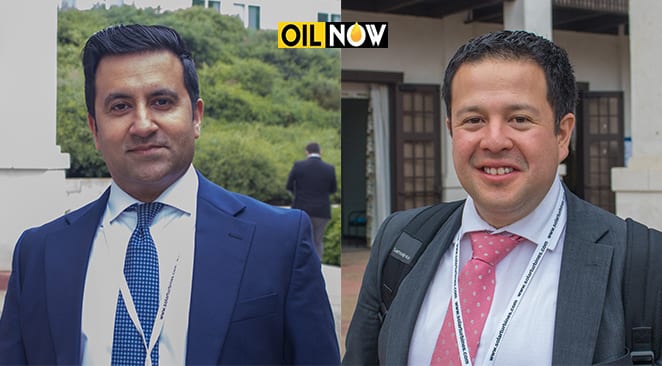Guyana’s success as an oil producing nation will depend heavily on the regulatory framework that is established and the transparency of agencies overlooking the operations of the oil and gas sector. Experts attending an energy conference in the US say regulators must be specially trained and equipped to work with multinational oil companies such as ExxonMobil, that operate under an international standard of regulations.
Speaking to OilNOW at the 26th annual La Jolla Energy Conference in San Diego, California, on Wednesday, Zeeshan Syed, Vice President at Alberta Energy Regulator, a Canadian-based corporation, said one of the key risk factors for countries like Guyana looking to attract foreign investment, is the regulatory system that is in place. “The more transparent and the more of an international standard that exists; it makes sense for operators and investors because the risk goes down.”
He said, contrary to the view that multinational oil companies prefer little or no regulation, the reality is that regulations provide a stable framework for them to operate, and this is preferred. “They would much rather have a template or a model that is applied around the world because it is easier for them. They assign resources accordingly as well. A lot of instability comes with zero regulations.”
Over the last two years there has been a lot of interest from regulators around the world in the oil and gas sector about how they can improve systems and procedures. Mr. Syed said a number of these regulators have been looking at Canada to learn from both its mistakes and successes.
He is part of the International Centre of Regulatory Excellence (ICORE), a world-class regulatory training institute, working in partnership with Mexico to build momentum on regulatory best practices. ICORE is an initiative of Alberta Energy Regulator.
Mr. Syed said many countries are in a position where they need to create national-level legislation that enacts energy reform.
In Guyana, multiple regulations are being drafted and proposed amendments to existing laws are being written and studied as the country gears up for oil production, set to get underway in 2020.
The country has also been moving to set up a number of regulatory and oversight bodies, such as the recently constituted Petroleum Department within the Ministry of Natural Resources. Work is also ongoing for the establishment of a Petroleum Commission.
While these are necessary and important steps, the need for placing the right personnel in positions is important if the regulatory framework is to be effective. “You need to have that strength in departments, you need to have the proper leadership there, you need to hire the right people who have to be trained in the right way to be proper regulators,” Mr. Syed pointed out.
Meanwhile, Luis Martinez Montoya, Coordinator of Advisors, ASEA, said the most effective approach is for Guyana to look at international best practice in the industry and build on this, rather attempting to reinvent the wheel. “You have to look into international practice. There are a lot of things that have been done in some other countries that are working greatly, and you should look up to those practices. Try to get what works for your country and just get rid of what doesn’t.”
There is a lot to be learnt from the industry itself, he said, pointing out that operators know what they are doing, and listening to them can be instructive. However, he was quick to point out that this must be done in a way that avoids conflict of interest and the role of the regulator must be separated from the role of companies. “Listen to them, but just stay on your feet as the regulator, and you have to find a way in which you are able to avoid conflict of interest and so on. I would say transparency is one of the best mechanisms to avoid problems.”
The Institute of the Americas 26th annual La Jolla Energy Conference got underway Wednesday, marking the beginning of two days of dialogue and debate on the future of sustainability and energy policy in the Americas.



